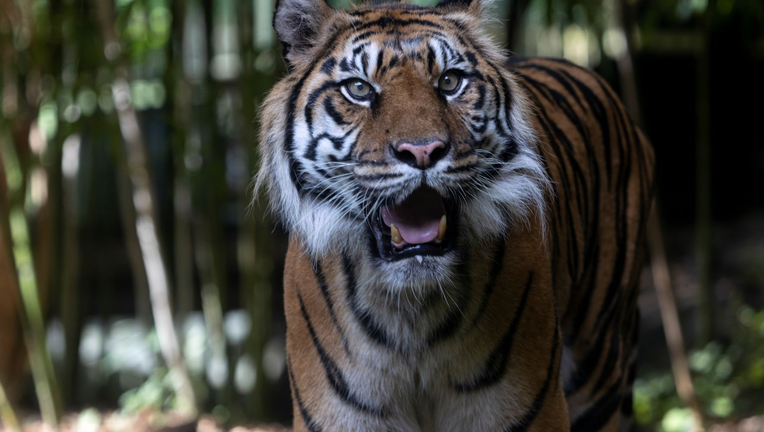Zoo Atlanta announces death of Chelsea the Sumatran tiger

Chelsea the Sumatran tiger
ATLANTA - Chelsea, a 20-year-old female Sumatran tiger at Zoo Atlanta, has died, leaving the zoo community saddened by the loss. The veterinary and animal care teams had been closely monitoring Chelsea's health due to chronic conditions, particularly kidney disease. Unfortunately, as there was no path to recovery for Chelsea, the difficult decision was made to euthanize her on April 10, according to the zoo.
"This is a devastating loss for Chelsea’s care team and for Zoo Atlanta. Chelsea was a magnificent cat with a tremendous legacy here at the Zoo," said Sam Rivera, DVM, Vice President of Animal Health. "While decisions like these are always heartbreaking and are never easy, our teams had reached a point where we knew that this was the most responsible and compassionate decision for Chelsea."
Sumatran tigers typically live 10 to 12 years in the wild, and Chelsea, at nearly 21, surpassed the average lifespan for her species. She had resided at Zoo Atlanta's John P. Imlay Tiger Habitat since 2006 and had given birth to cubs Sohni and Sanjiv in 2011, marking the first Sumatran tiger births at the zoo in over a decade. Both cubs now reside at other Association of Zoos and Aquariums (AZA) accredited organizations.
Sumatran tigers are critically endangered, with fewer than 400 believed to exist in the wild due to habitat loss, fragmentation, and illegal poaching. Zoo Atlanta plays a role in conservation efforts and is home to a young male Sumatran tiger named Bob, who arrived in November 2023. The zoo advocates for sustainable palm oil production, as unsustainable harvesting threatens the survival of Sumatran tigers and other species.
Additionally, Zoo Atlanta is part of the Wildlife Trafficking Alliance, working to raise awareness about the illegal wildlife trade. As part of this effort, the zoo educates visitors about the impact of wildlife trafficking and the role of social media in perpetuating the trade.
Following Chelsea's passing, a necropsy will be performed through the zoo's partnership with the University of Georgia Zoo and Exotic Animal Pathology Service to better understand the cause of her death.

